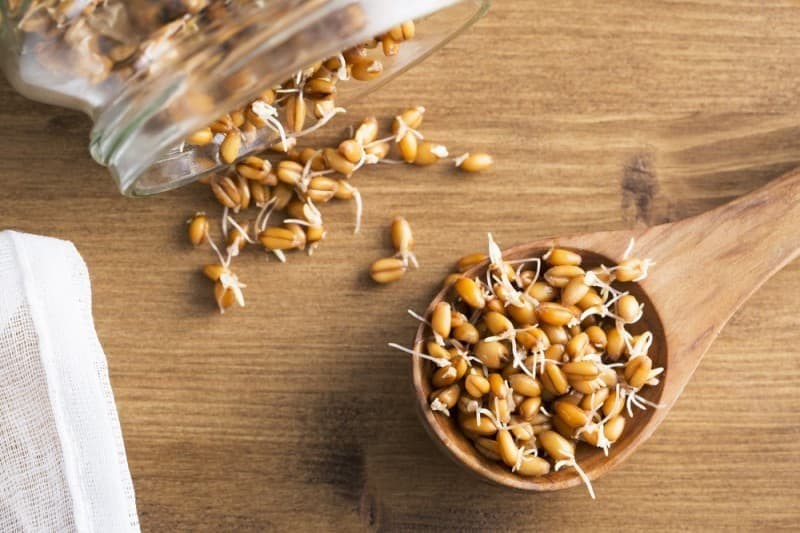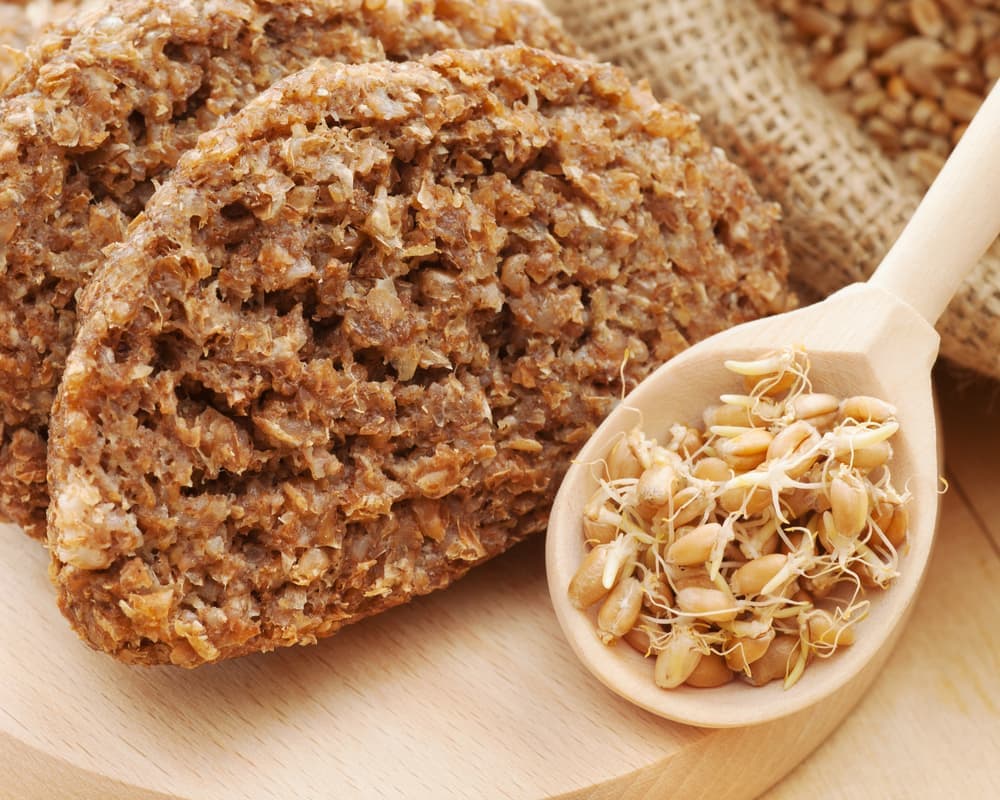
Sprouted grains are whole-grain seeds that have just begun to sprout. Unlike processed grains, they offer more nutritional benefits, hence serving as a valuable part of a healthy diet. But how can they be used? Read on as this guide not only explains what makes these grains healthier but also shows you what makes them amazing pantry staples.
The Problems with Processed Grains
The health benefits of grains, such as wheat and rice, are totally dependent on how they are consumed. As the germ and bran are removed, refined grains are now stripped of most of their nutrients. This is done so the grain can be preserved for a longer time. When making or manufacturing white flour, over half of the nutrients, such as vitamins B1, B2, B3, calcium phosphorus, folic acid, copper, zinc, iron, and fibre, are lost.
The consumption of refined, processed grains has negative effects on your health, and they can directly contribute to the development of a variety of health problems, which include high cholesterol, obesity, coeliac disease, cardiovascular disease, stroke, hyperglycaemia, diabetes and fatty liver disease, among many others. The problems arising from eating refined, processed grains, such as white rice and bread, crackers, pastries and cereals, have only been documented in the past one hundred years, but people have known the problem for thousands of years.
Traditionally, all grains and seeds, including wheat and rice, were sprouted. Sprouted seeds are found to have as much as ten to twenty times more nutrients than processed seeds. In fact, studies have shown that sprouted brown rice is ideal for blood sugar control and the reduction of cholesterol levels. Wheat seeds have been processed and eaten 2000 years ago but this was only during times of famine or by armies that were on the move.
Benefits of Sprouted Grains
After the germination process, the grains, seeds and nuts undergo a chemical change that leads to the reduction of antinutrients such as phytic acid and enzyme inhibitors. They manage to retain their natural plant enzymes as they are generally not cooked. Sprouted grains have natural digestive enzymes that help in breaking down protein into amino acids, which play a vital role in regulating the body's functions. They're considerably better for the digestive tract than unsprouted grains as they have a higher nutrient content, which would've been destroyed by cooking.
Sprouted grains, seeds and nuts also help in the growth of good bacteria in the gut, which keeps the colon clean. They are also rich in protective antioxidants that combat disease. The sprouting process has decreased the grains' gluten content as the starch has been converted into simple sugars, hence sprouted wheat bread can be safely consumed by people who have gluten intolerance. On the other hand, wheat, in its cooked form, can cause mucus congestion, constipation and allergic reactions.
Aside from being very digestible, the sprouts are an excellent source of fibre and protein, and are high in minerals and vitamins. For example, sunflower sprouts are rich in vitamins A and C, while mung bean sprouts are rich in vitamin C, iron and potassium. Most seeds are rich in phosphorus, which is important in keeping alertness, increasing mental abilities, and maintaining healthy teeth and bones.
Sprouted Grain Breads

Compared to regular bread, sprouted grain breads have higher protein, vitamins and enzymes, and the complex starches have been converted into natural simple sugars. They are considered low glycemic index (GI) foods as they are slower to be digested by the body and slower to raise blood sugar levels. This makes them more satisfying and healthier as they reduce snacking. Keep in mind that the more processed the food is, the higher its GI. A load of sprouted grain breads has significantly lower GI than a loaf of white bread made from regular grains.
Eating Sprouted Grains
It is important to know that when eating sprouted grains, seeds, and nuts, you have to eat the entire sprout, including the roots and the leaves. While these edible sprouts can be eaten by themselves, they can make tasteful additions to soups, salads and sandwiches. The sprouts can be stored inside the fridge for up to two weeks, though it is noteworthy to mention that the sprouts and seeds turn bad if they are kept for too long.
Making your Own Sprouted Grains
You can make your own sprouted grains or seeds at home. For overnight, simply place the grains or seeds inside a large pot. After having soaked overnight, use a colander to rinse them. Rinse the grains or seeds two to three times a day until the sprouts begin to form. The length should ideally be around a quarter inch. Depending on how you will use the sprouts, you can put them aside fresh or dehydrate them. To dehydrate sprouts, rinse them one last time before placing them on a dehydrating tray. They should normally take around four to six hours to dry. After drying, use them quickly or store them in an airtight container inside the fridge for up to one month.
You can also purchase sprouted grains or sprouted whole wheat flour in health food stores or through authorised online distributors of organic and gluten-free products.
Originally published on Jun 20, 2018








